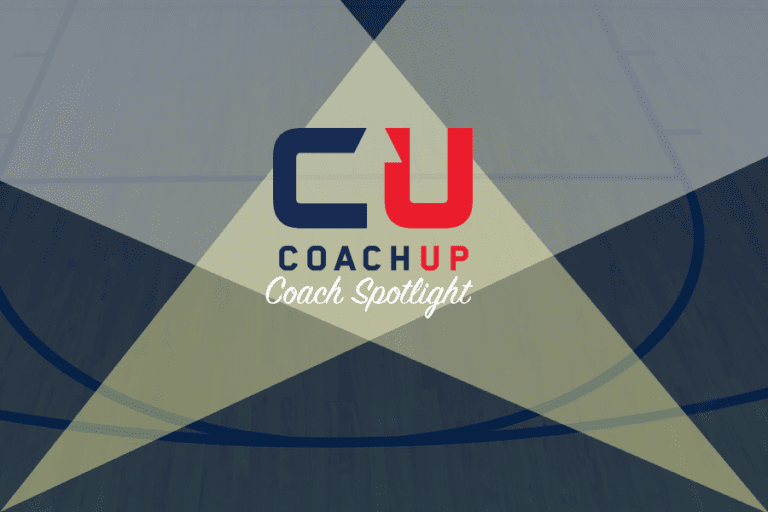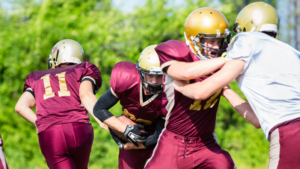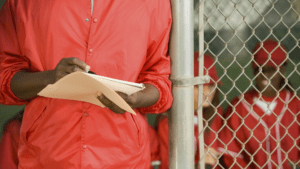Another day, another coach spotlight! This week we hung out with Coach Justin from Falls Church, Virginia! At this point, you know the drill: if you’re lucky enough to live near Coach Justin, feel free to shoot him a message, chat him up, maybe even book him as well. Otherwise, every interview we do with our coaches is purposeful and helpful — do you know what you want from your clients? From the athlete’s parents? What should clients expect from a coach as thorough as Coach Justin? All those thoughts can be found in the interview below, so get started today!
CoachUp: Hi, Justin! Can you tell us about yourself and your experience with basketball?
Justin Diggs: First of all, thank you for selecting me as one of the coaches you wanted to spotlight. It is truly an honor and testament to a lot hard work and athletes who trusted me to deliver exceptional results. I started playing basketball in Frankfurt, Germany when I was 7 years old and have not stopped since. After a successful high school career, I took the Junior College basketball route to Frederick Community College, eventually earning a scholarship to Barton College in Wilson, NC, where I was part of a 28-4 team my senior year that went to the NCAA Division II Elite Eight. Soon after that I started teaching the game and eventually moved into private training.
CU: What is your coaching style or philosophy?
JD: My coaching style is based on intensity and demand — setting the tempo early, demanding excellence, and pushing players beyond their limitations has always been key components to my coaching style. I believe you can get the most out of players using direct communication, pushing them to the limit, and giving them the confidence to believe they can reach their potential and beyond by applying themselves. Usually, intensity and fire in a coach are code words for screaming, yelling, and berating players, but I believe you can be a master motivator without belittling players by simply communicating and showing them exactly what you want in a highly energetic, enthusiastic, and simplistic approach. Doc Rivers is a great example for me to follow and I try to use that type of persona through my teachings.
 CU: What can a client expect from private lessons with you?
CU: What can a client expect from private lessons with you?
JD: My athletes can expect me to be heavily involved in each drill not only verbally, but physically. One of the key lessons I always spread other coaches and athletes is that everybody looks good against chairs, cones, and air. I’ve managed to keep myself in good physical condition which allows me to challenge my athletes one-on-one so they can test themselves with each skill they learned. I am ultra-competitive so they really have to be sharp and fundamental to be successful against me. The ability to perform a move does not matter if you do not know the moment and timing for it.
CU: Can you describe any big or little “wins” that you’ve had with the athletes that you train?
JD: One of the athletes I trained all summer long just could not score well because he could not achieve the mind and body connection it takes to be successful in basketball. During one session early in the fall, he made a move that shook me out of my shoes and then he scored a basket. It was a move that I taught him, so aside from the initial shock, I was proud to see him take what he learned and apply it in a live setting.
CU: What do you enjoy most about coaching?
JD: I enjoy seeing the progression in my athletes week-to-week and using the lessons they are taught during in-game situations. Coaches can tell if an athlete is improving, even it’s just incrementally. The key is to keep testing their limits and never allow them to be satisfied with the level they’re reached. If an athlete isn’t progressing at the rate I feel they should, I’m not doing my job. Meeting a player’s goal such as making a team or improving a particular skill-set is also extremely gratifying to be a part of.
CU: What is the biggest lesson you’ve learned as a coach?
JD: The biggest lesson I’ve learned is that communication is essential. You may not completely lose them, but the minute an athlete tunes you out, you have lost the chance to maximize their potential. You must always create ways to not only motivate your athletes, but motivate yourself to motivate your athletes using a unique approach each time.
CU: What is your favorite moment in your athletic career?
JD: My favorite moment in my career would have to be when I scored 11 points in just 13 minutes off the bench to help my college team Barton College rally from a 15-point second half deficit and advance to the Sweet Sixteen. The very next game, we rallied again from 16 in the second half to advance to the Elite Eight. I’ve never been on a team that simply wanted it more and did not have the word quit as part of there vocabulary.
CU: What’s the most important advice you’d give to other coaches? To athlete’s parents?
JD: The most important advice I give to other coaches and parents is to explain the why in your principles. If an athlete not only knows what to do in key situations, but also why they are doing it, it will increase their focus and allow them to lock in and develop the most underrated attribute in sports — the experience. Bravo, Justin, thank you! If you’re involved with CoachUp in any way, shape, or form, then you can find something to take from this great interview. Let us know what you’re going to change or improve on in your own training sessions! Again, if you’re near Justin, we encourage you to shoot him a message and find out what he’s about — get training!
How useful was this post?
Click on a star to rate it!
Average rating 4 / 5. Vote count: 1
No votes so far! Be the first to rate this post.



